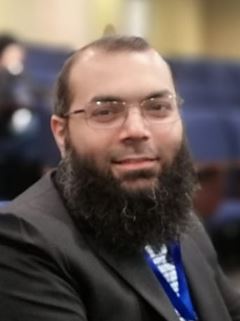If Determination Had a Face
Based on a true story of a young doctor's perseverance in his fight against the novel coronavirus
Tringgg tringgg… My phone was ringing at 2:30 am on a Monday. Most civilized people in this chaotic world would have been sleeping at this hour for a fresh start to the upcoming week. But I was up working on one of those PowerPoint presentations that everyone drags until the eleventh hour, hoping for a miraculous postponement. I checked my phone; it was my junior resident, Mubashir. I wasn't surprised. Mubashir had been in isolation for over a month now after repeatedly testing positive for COVID19. To be detached from an all-consuming routine, isolated from the world, and confined to a single room for such a long time would take a significant toll on anyone's sleep cycle. However, being surgery residents, our sleep cycle was already disturbed to such an extent that it couldn't be called a cycle anymore. Both of us had adapted to a semi-nocturnal lifestyle, staying up well past midnight to work on presentations, research projects, or reading. Mubashir would often call me after midnight for discussions and at times just to chit chat for a while. He wasn't so lucky that night.
I picked up the phone and was met with Mubashir's wife on the other end. In a trembling voice, she told me that he had briefly lost consciousness for a few minutes. I instructed her to call an ambulance and shift him to our hospital's emergency right away. It was the beginning of June and coronavirus cases were on a steep rise in the city. Since our hospital was one of the best-equipped and most prestigious health-care institutions in the country, the beds reserved for COVID-19 patients were often occupied. Luckily, a bed was arranged for Mubashir and he underwent an MRI scan which revealed an uncommon neurological complication of the novel coronavirus, the hallmark of which is an increased tendency to form blood clots. Mubashir was admitted under close observation.
The next week was perhaps the most stressful during my training so far. Mubashir's condition gradually deteriorated while physicians struggled to contain the damage. Being admitted in the dedicated COVID-19 unit meant that his family members could only talk to him for a limited time on the phone and could not visit him. What is more demoralizing than to see one's dream of becoming a surgeon hang in the balance and not be able to meet one's family .The fellow residents and attendings would visit him multiple times a day. Clad in personal protective equipment (PPE) from head to toe, we would help him eat food, have him talk to his family, and try to keep him motivated. Recovery from neurological illnesses is often a slow gradual process and staying hopeful and optimistic is of utmost importance.
Although we had managed many such patients in the past, having a dear colleague endure the same had an altogether different effect. Many other residents and attendings in the hospital would inquire about his health often. There was not a single meeting or academic session in our section where Mubashir was not mentioned. Everyone was praying for his full recovery. Whenever I met him, he would ask for an update on his medical condition and even discuss treatment strategies. He knew that physiotherapy was crucial to attain full recovery, and I saw him trying to exercise when he was alone with whatever limited physical strength, he had left. There were times when he would seem less positive and I would try not to look him in the eye, because even in those moments he was more hopeful than me. The half-face elastomeric respirator, eye goggles, and face shield made it easier for me to hide my emotions. Mubashir was lucky that the worst did not happen, and a week after his admission his physicians were finally able to alleviate his illness.
From then onwards there was no looking back. When his 8th nasopharyngeal sample came out negative for the coronavirus, everyone was relieved. On his very first day out of isolation, Mubashir was on his feet again! And to our utmost joy, only after a couple of days Mubashir was able to walk through the ward's corridor (with support). Just like the old proverb, “A wise man doesn't see his foot on the ground, he watches his next step."
was relieved. On his very first day out of isolation, Mubashir was on his feet again! And to our utmost joy, only after a couple of days Mubashir was able to walk through the ward's corridor (with support). Just like the old proverb, “A wise man doesn't see his foot on the ground, he watches his next step."
Ever since the pandemic started, I have witnessed waves of fear engulfing everything around it with uncertainty. Bearing witness to hope's triumph over despair has been emboldening. Mubashir was discharged from the hospital after another three weeks of stay. His journey so far has been a remarkable one and his strong resolve is an inspiration for all healthcare workers and patients. To escape from the clutches of death is a miracle. I had been intrigued all along in what made Mubashir sail through this dreadful journey with calmness and determination. I got the answer in a recent conversation with him when he mentioned,
“Dr. Saqib, mene negative sochna chor dia hai."
Disclaimer: All events described in this recollection are based on truth. Name has been changed for privacy. The person has given consent for his story to be made public. This blog cannot be held responsible for events bearing overt resemblance to any actual occurrences. The views expressed do not necessarily reflect the views and policies of CCIT or AKU.
About the Author

Saqib Bakhshi is a final year neurosurgery resident at Aga Khan University Hospital. He loves to read, is an avid storyteller, and an equally passionate writer. His literary work which is primitive, yet soothing for the heart, can be read on his blog, ‘Perseverance unfolded’. (https://surgeon365.wordpress.com/)

